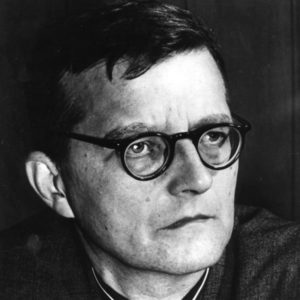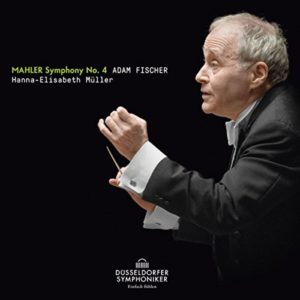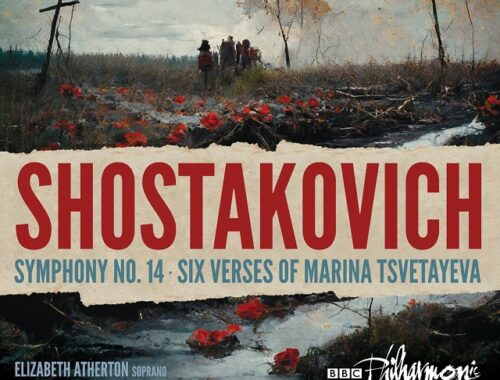London Philharmonic Orchestra, Mattila, Hampson, Jurowski, Royal Festival Hall (Review)
A single bottom C sunk deeper than even the deepest underground trains running so audibly below the Royal Festival Hall was the auspicious start to the South Bank Centre’s much anticipated festival “The Rest is Noise”. Forget Hamlet’s famous last words, when Zarathustra has spake the sound resonates through an eternity of silence.
Alex Ross’ hugely influential book on which this festival is based begins, as did Vladimir Jurowski and the London Philharmonic Orchestra, with Richard Strauss. A decade in the lead up to his sensational Salome was Jurowski’s thinking and while whole battalions of musicians were being shifted between pieces Jurowski informally chatted to us from the side of the stage offering insights and pointers that would help illuminate what we were hearing. It’s catching on, this verbal interaction with an audience, and as Jude Kelly, the centre’s Artistic Director, said at a pre-concert event I hosted, a little talking can open an audiences ears as well as their hearts and minds. Remember how Daniel Barenboim demystified the Schoenberg Variations a year or so ago? Jurowski, and later the baritone Thomas Hampson, didn’t lecture us but rather shared their thoughts. We felt like participants, not mere observers.
But not before Also Sprach Zarathustra had once more shaken our convictions about Richard Strauss. Perhaps the most remarkable thing about this typically enlightening Jurowski programme was that it totally banished our more cuddly preconceptions about Strauss and showed, through a darkening sequence of shrewdly juxtaposed pieces, how radical his work in fact was. Zarathustra’s nihilism came upon us by stealth, diaphanous textures taking us from one hedonistic paragraph to the next. The great fugue of “Science and Learning” had a monstrous pay-off, the rising three notes of the dawn now delivering a terrifying proclamation. The fierce opposition of major and minor tonalities stretches to infinity long after the tolling of the midnight bell has terminated the delirious totentanz which precedes it. Jurowski’s reading – and the LPO’s refulgent and determined playing – was both emotive and starkly scientific.
In a way it was a pity to reveal our Salome – the amazing Karita Mattila – so prematurely in the evening but the two early songs she offered in a group of four – Verführung (“Seduction”) and Gesang der Apollopriesterin (“Song of Apollo’s priestess”) – were real rarities with the latter offering the line “We bring the fruit in a silver salver” as a chilling portent of the lustful and deranged princess to come. Mattila sings with all of herself and whilst finessing in the upper part of the voice is probably a thing of the past her shining open sound and the sheer physicality of her singing sweeps pretty much all before it. So four lofty love songs with Thomas Hampson also showing himself in fine vocal fettle in the more familiar Hymnus (“Hymn”) where Wagner looms so majestically.
It seems that it was Hampson who brought the little heard orchestral song Notturno to words by Richard Dehmel, he of Schoenberg’s Transfigured Night. As Jurowski put it in his preamble this song turned psychodrama with its distinctive and eerie colorations (an important role for Death, the fiddler, a.k.a. as the LPO’s leader Pieter Schoeman) was a startling indication of the road not taken, that is the crossroads where Strauss and Schoenberg parted company.
And then Salome danced. And Jurowski opened all our senses, the monster orchestra so light on its feet, the voluptuous waltz so airborne, the feverish xylophone-driven conclusion giving only scant indication of the price this sexy, exuberant dance might exact. Enter again Mattila, tellingly minus her shawl, to bare all, emotionally speaking, in the shocking finale scene. There are various ways to go in the singing and acting of this infamous scena but understatement cannot be one of them. Mattila went for broke, the fullest monty, the total disintegration of an abused young woman’s humanity subsumed as it is here by lust. She was fearless, taking the vocal line to the very limits of her possibilities and beyond. She slid grotesquely through the myriad chromatics living dangerously on the flat side of pitch and puffing out her chest notes at any mention of “death”. It wasn’t pretty but it was hair-raising and it – along with the rest of the concert – set the bar extraordinarily high for the year ahead.


